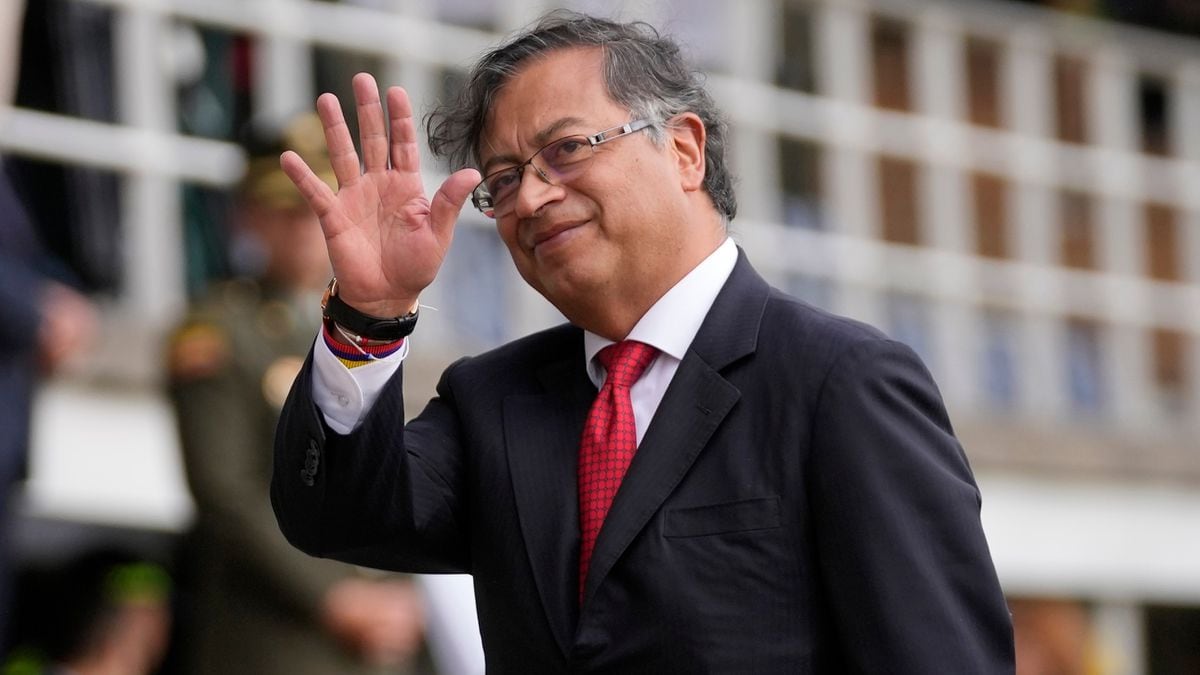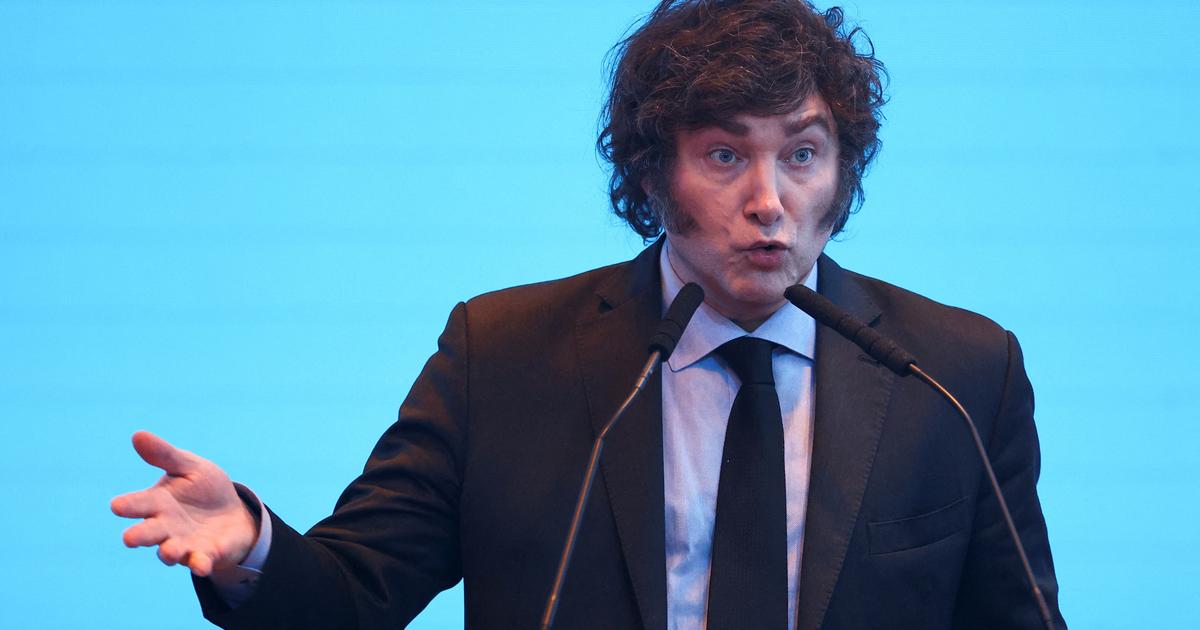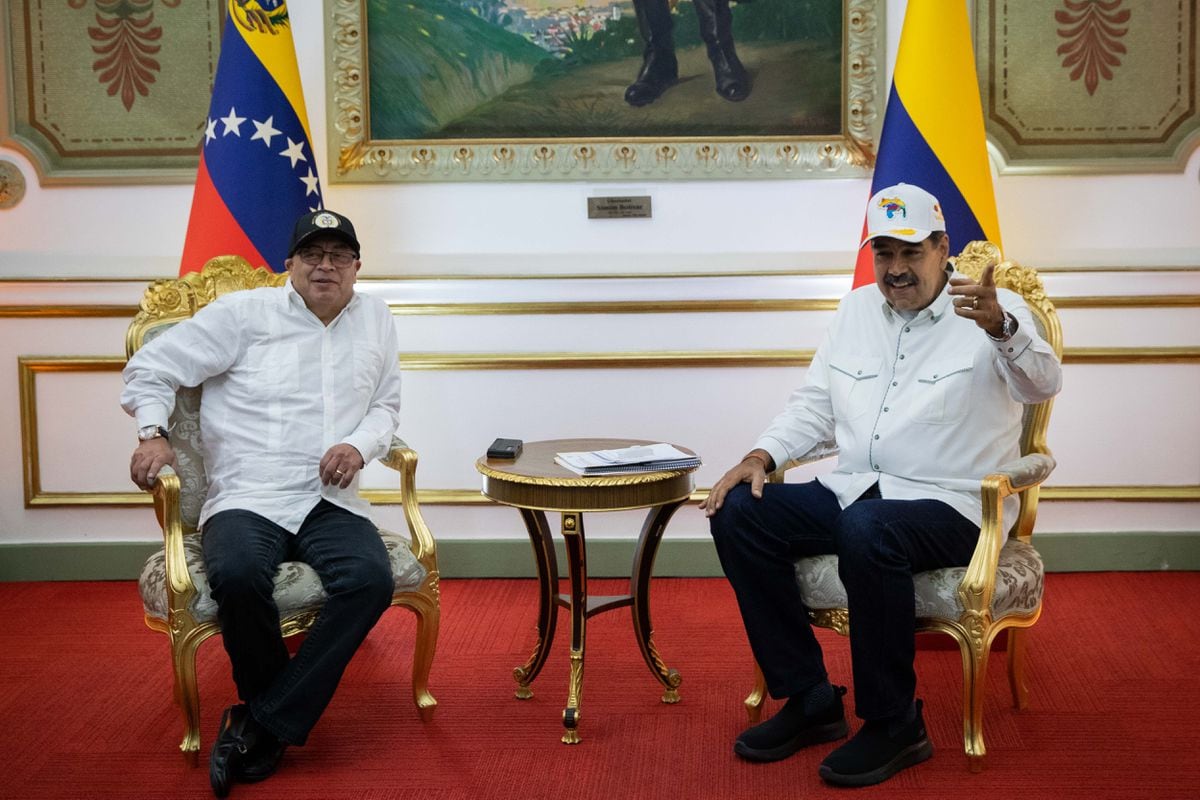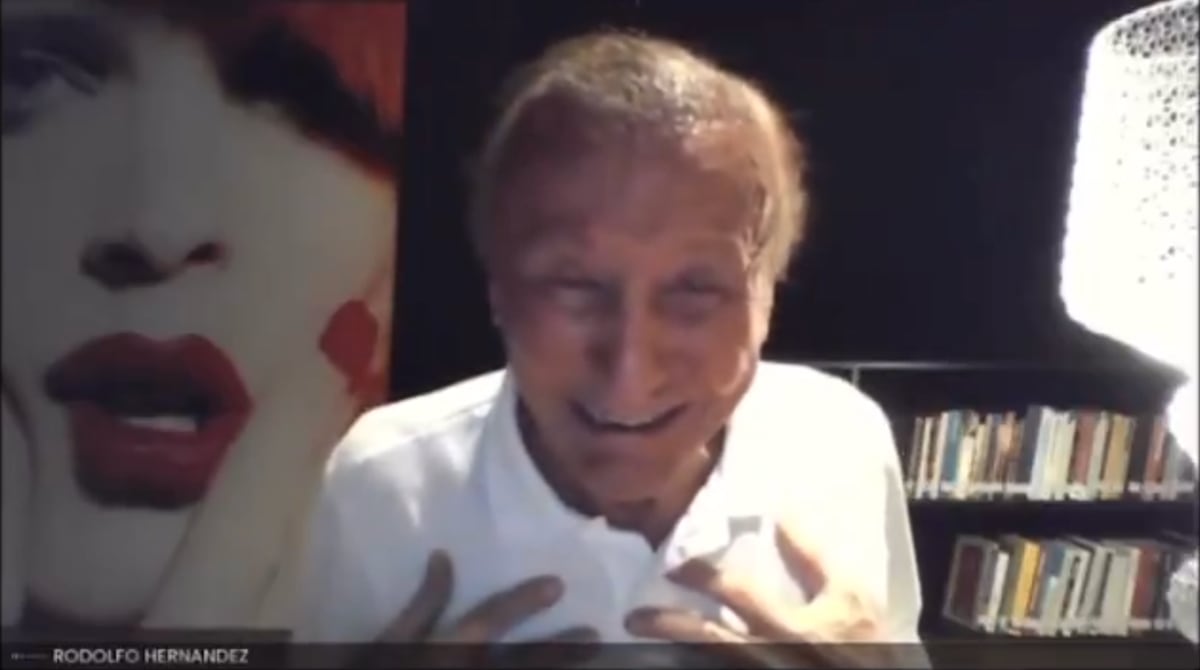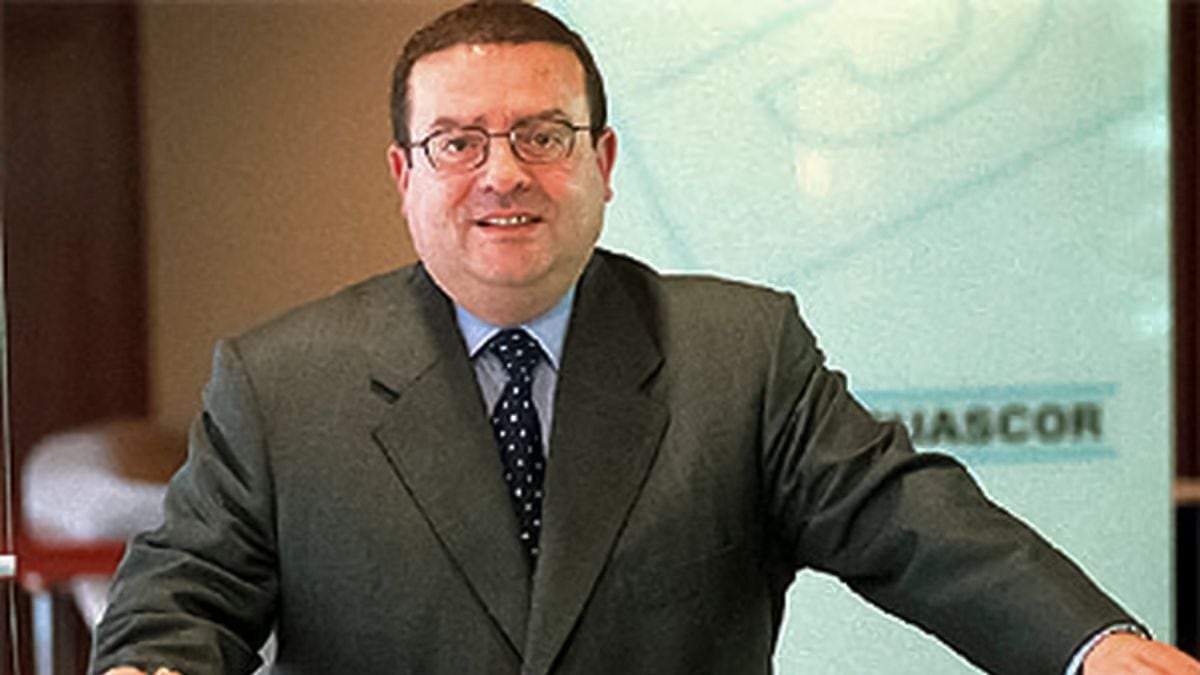Those days the feeling spreads that Rodolfo Hernández is going to be the next president of Colombia.
The real estate businessman is propelled by a wave of enthusiasm like the one that brought Donald Trump to the White House.
He is a novel and groundbreaking character, with the gift of calling things by his name.
Citizens gawk at videos of him on TikTok, where he appears aboard a yacht with skin orange from the Miami sun and transplanted hair rocked by the wind.
Two out of three polls give him a slight advantage over Gustavo Petro, the left-wing leader who no longer has the voice to redirect the situation.
At that point, a court orders the candidates to hold a debate within 72 hours of the polls opening.
Petro immediately accepts.
Hernandez, a visceral guy who often loses his temper, tries to evade it,
and instead sends a superb and lacking statement in which he despises some basic principles of democracy.
Petro's main strategist, the Spaniard Antoni Gutiérrez-Rubí, reads the message on his cell phone and concludes something prescient: "We just won."
Gutiérrez-Rubí had been installed in a hotel in Bogotá for three months, 50 meters from Petro's house.
At one of the
lobby
tables , in front of a fireplace, each morning he opened his computer, a bottle of water and a Gallimard notebook.
He was advising a man famous for being late even for his wedding, but for his appointments he recommended extreme punctuality.
He suggested that they not make personal assessments during the presentations of data that he himself prepared on the electoral scene and, after 20 minutes, when he thought that everything had been said, he accompanied them to the door with a courteous gesture.
There was no time to waste on his only mission: to make Gustavo Petro president.
The political consultant has been the secret trick of the elections.
He has hardly been seen in public, has not given statements to the media or allowed himself to be photographed.
However, he has been behind all the momentous decisions that have marked the campaign.
In moments of hysteria, even if no one saw it, there was a serene and calm person in charge.
It is true that he worked for the favorite candidate at the beginning of the presidential race, who was leading all the polls after the social explosion last year.
But also someone who generated a lot of resistance in Colombian society because of his guerrilla past.
Until him, Colombia had never before elected a president who declared himself openly leftist.
This has been the most difficult campaign for Gutiérrez-Rubí, the one that has pushed him to the limit.
And it's not like he's a novice at this.
In 2019, he advised who would end up being the Argentine president, Alberto Fernández, as he had previously done with Cristina Fernández and Sergio Massa.
In Spain he worked with Alfredo Pérez Rubalcaba, among many others, and was behind the campaign that, in 2018, put a PP president for the first time in Andalusia, Juan Manuel Moreno Bonilla, an absolute unknown then.
Moreno has just been re-elected with an absolute majority and has been advised by people from the Gutiérrez-Rubí team, who commanded the operations from Bogotá.
On the same Sunday he placed two presidents in different places on the planet.
Antoni Gutiérrez-Rubí, Gustavo Petro's campaign adviser, in the candidate's apartment days before the second round elections.
Camilo Rozo
Petro is 62 years old, Gutiérrez-Rubí, 61. The former is a charismatic leader with broad social support.
During his controversial stage as mayor of Bogotá, he generated a personalist movement called petrismo for obvious reasons.
It represented the break with the established conservative power, the opposition to Álvaro Uribe and his successors.
In 2010, when he presented himself as a presidential candidate for the first time, and especially in 2018, the second time, he forged the image of a leftist concerned about the poor, although somewhat aligned with the theses of Cuba and Venezuela.
That was electoral kryptonite in a country like Colombia, which for decades suffered from the violence of the FARC, a Marxist-Leninist guerrilla.
The left did not have the democratic legitimacy to convince voters that it was not going to establish a socialist dictatorship.
It didn't help that as a young man he had joined another armed movement, the M-19, and there he had called himself Aureliano, like one of the characters in García Márquez, his favorite writer.
In the organization he was an activist, not a true combatant.
At that time, Petro was in his early twenties, emaciated and already suffering from severe myopia.
The guerrilla to which he belonged demobilized and he got into politics.
He was a combative senator, he drew a lot of attention for his speeches.
He later supported the peace with the FARC signed by President Juan Manuel Santos, even though he was not the type of politician he felt represented by.
That non-violent conviction did not reconcile him with the majority of the electorate, who continued to see him as a rebel with a rifle on his shoulder, although that was only a mirage.
That is the type of candidate Gutiérrez-Rubí found himself with when he landed in Bogotá, unaware that the most hectic months of his life lay ahead of him.
Before your arrival, the
war room
of the candidacy was the closest thing to the cabin of the Marx brothers.
Some new adviser would always come along with some wacky idea.
Petro was a politician with projection and charisma, those around him agree, who lacked structure and direction if he really wanted to come to power and not just make noise.
That was given to him by political operators like Armando Benedetti, who since 2019 joined him and began to organize everything.
With Gutiérrez-Rubí also came Alfonso Prada, a highly articulate professional politician who worked as an adviser to Santos.
There was also the brainy Eduardo Noriega, an old comrade of Petro.
The campaign was professionalized to the maximum and ceased to be managed by impulse or by Twitter (Petro, who has 5.4 million followers, is addicted to that social network).
Petro's circle of trust narrowed.
The Spanish adviser relied on two young journalists to carry out the communication.
In them he placed all his trust and generated a second ring of trust.
Then came the first acceleration and the first disappointment.
In Colombia there is a first round in which many candidates face each other and a second in which there are only two left.
If someone gets more than half of the votes first, he automatically wins, as Uribe did.
In those days the polls calculated that he had around 40%.
He needed 10 more points to win by acclamation, as he wanted.
Although he is practical and has been in politics for half his life, Petro still has some idealism left.
He not only wants to return the ball to the other court like the tennis players who have accepted his limitations, but he takes risks by sending the shots to the line.
Petro accelerated and gave rallies throughout Colombia, even in three cities on the same day.
He focused his speech to broaden the electorate.
He remained to see which was greater, if Petrism or anti-Petrism.
Gutiérrez-Rubí whispered to him that they needed to play the keys to expand the circle of their own, add and represent.
They insisted that they are not going to expropriate anyone, as their enemies said, that they would respect market capitalism.
It was a praise to moderation, as the strategist writes in his book
Democratic Fatigue
.
In that month he was already seen to grow more beard and hair that will not be cut due to lack of time and trustworthy barber.
The plan worked, but it did not succeed completely.
Petro did not get the 10% that was needed to settle the election in May.
There would be a second, where all those who were against him could organize.
The fear that always hovered over the campaign.
The day these results were known, the entire team was at the Tequendama hotel, in the center of Bogotá.
They received the numbers like a stab.
Behind came Rodolfo Hernández like a locomotive, who, if they added the votes of the right, was already the clear favorite.
Petrism was at a funeral.
In a corner of the hotel, Gutiérrez-Rubí remained calm.
“These three weeks are going to be very long for Rodolfo” (the ones that the second round campaign lasts), he reflected.
And they were made.
Petro stopped speaking in public squares, he lowered his profile.
The adviser wanted all of Colombia to carefully observe this businessman who claimed to fight against corruption, but he was charged with a case.
His sexist and classist statements came to light.
His popularity began to decline.
The media published secret videos of the meetings of Petro's advisers in which they were seen speaking ill of their rivals and preparing strategies, which seemed like a great crisis.
Gutiérrez-Rubí ordered not to confront these attacks, because Petro barely appeared on the recordings and did not say anything serious.
The controversy died down on its own.
Antoni Gutiérrez-Rubí, advisor to Gustavo Petro, in the dressing room with him minutes before giving the victory speech in the elections. Camilo Rozo
In the final week, while inconvenient opinions of all kinds made by Hernández appeared, Petro invoked a great national pact with a clear message: his presidency would not entail any trauma for Colombians who did not vote for him.
He would rule for all, he insisted.
Without fears.
Gutiérrez-Rubí had him broadcast what he grandly called a message to the nation.
Presidential, in the style of Lula's famous letter to the Brazilian people.
In those came the order to hold a debate.
The suicidal statement of the Rodolfo campaign and the triumphant phrase of the calm adviser (“we just won”).
On Saturday, the day before the elections, he gathered a small group of people in his hotel to explain in a PowerPoint why he thought his client would win the next day, despite what most public polls said.
He poured water for those present, who raised their eyebrows at the statistics.
The feeling was that Rodolfo was in the lead.
On Sunday, Petro added 11.2 million votes, the best result in history.
While Petro was moved to tears celebrating the victory and people poured into the streets, he went to the hotel early to sleep.
The next day he had a flight to catch.
The job was done.
Subscribe here
to the EL PAÍS newsletter on Colombia and receive all the key information on the country's current affairs.


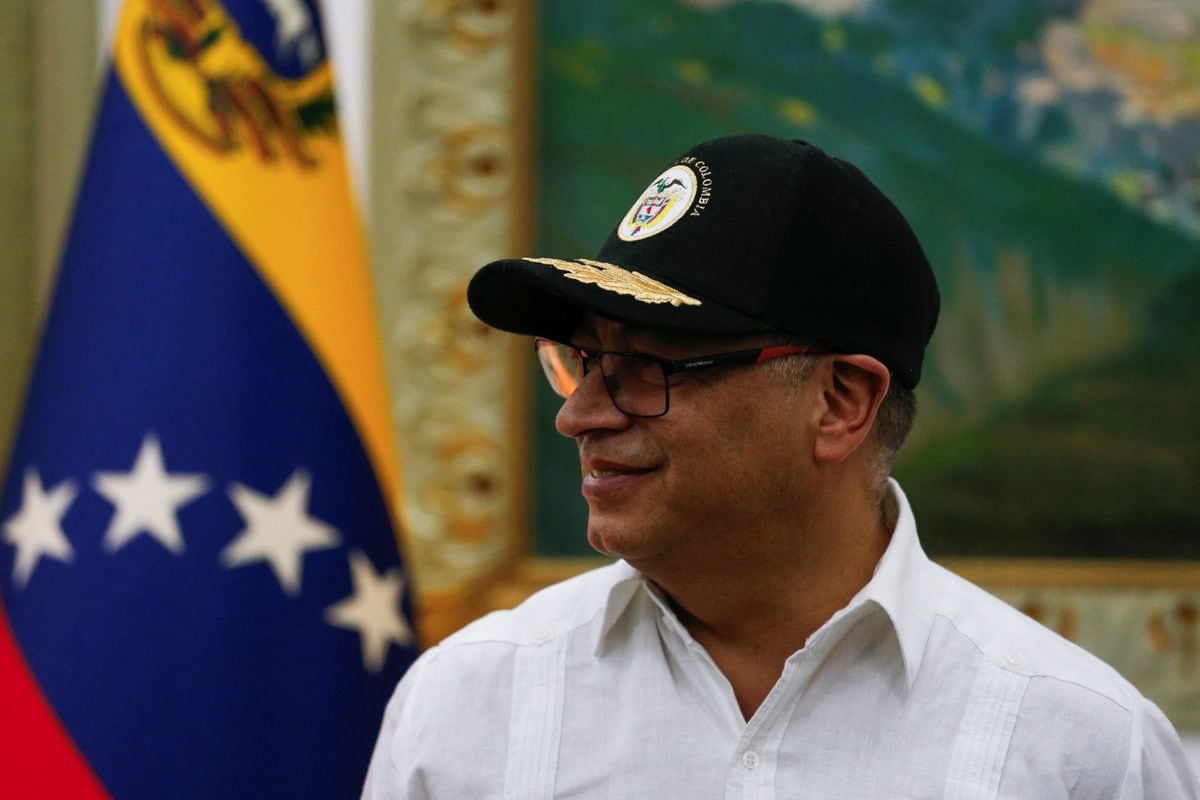
/cloudfront-eu-central-1.images.arcpublishing.com/prisa/RYAE4R2YX5G7LGEJQ74SXZI47A.jpg)
